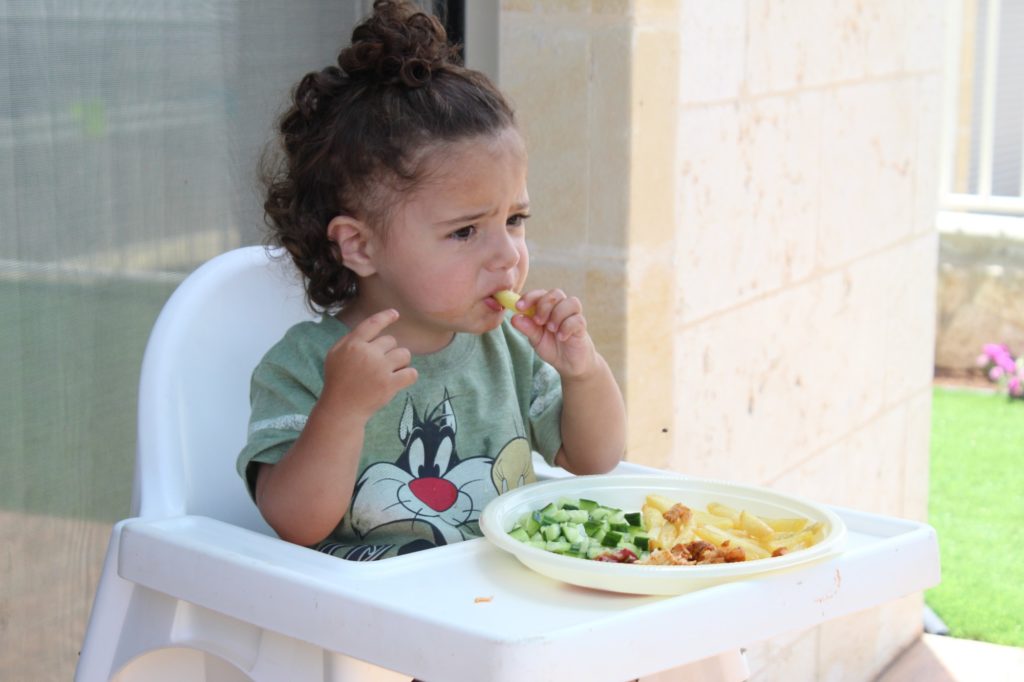
About 20% of children between the ages of 5 and 11 already have at least one decaying tooth.
So, before the baby even pops out that first tooth, you should be thinking about their dental health. As the foods your child eats will impact the health of their teeth and gums for the rest of their lives.
Read on to learn which foods and habits your child should follow for a proper dental diet.
Fill Up on Foods Full of Nutrients
For dental health, it’s best to feed children foods that help support the immune system. Food with high nutritious value offer vitamins, minerals, and antioxidants. Foods that help fight inflammation can also increase the health of their gums.
Food for healthy gums can help to ward off oral germs, disease, and infection. This includes cavities, gum disease, and periodontitis.
Pediatric dentists recommend foods like whole fruits and veggies and heart-healthy fats. As well as whole grains, lean proteins, nuts, eggs, and legumes. Yogurt is also a great choice as it is full of probiotics to lower bacteria growth.
Cheese contains calcium, which helps to protect teeth. It can also increase pH levels in your mouth and produce more saliva. This helps to lower the risk of tooth decay.
Foods high in phosphorous also work to help protect tooth enamel. It also helps to consume foods high in water content, like fruits and veggies. These help to clean the teeth while eating.
Beta-carotene is another important nutrient for oral health. It works to protect tooth enamel and you’ll find it in leafy greens.
Eating these types of foods will also stimulate more saliva. This helps to remove food particles and acid from the mouth.
Avoid These Foods for Better Oral Health
Try to avoid unhealthy carbohydrates, like starchy potato chips. These can stick to teeth and cause plaque buildup.
Acidic foods can also wear down tooth enamel. This includes citrus fruits, tomato sauce, and vinegar. Yet, citrus fruits can be good for vitamin C content and fighting inflammation.
It also helps to set up a snack schedule for your child to space out times between meals. This gives their mouth a break, resulting in better saliva production while eating.
Say No to Sugar
Sugar may be sweet, but it can wreak havoc on a healthy smile. For proper dental health, children shouldn’t have more than 6 teaspoons of added sugar a day.
Foods high in sugar cause damage to teeth because it reacts with bacteria in the mouth. This causes tooth decay over time and increases the risk of cavities. This is especially true for children, whose teeth are more vulnerable than adults.
Foods to avoid include cereals, candies, chocolate, cookies, and soda. You also want to be careful with honey and maple syrup. As well as sugar-filled foods with a sticky consistency.
Fruits with natural sugar are okay in moderation. Be sure to always check the labels on kids snacks. As these can often hide a lot of added sugar in them.
Be Careful What They Sip On
Certain drinks can also contain high amounts of sugar or may stain the teeth. Drinking too much fruit juice can coat the teeth with sugar.
You should also be careful with lemonade, sweetened tea, and sports drinks. Lemonade is also acidic, which can damage the tooth’s enamel over time.
It’s best for children to drink water with their meals. This keeps them hydrated and helps to flush out toxins from the mouth.
Milk is also an important part of a child’s health and development. This is why pediatricians recommend a few cups of milk a day for younger children.
Milk’s calcium and casein proteins can also help prevent gum disease. It also contains vitamin D to promote stronger teeth and jaw bones.
Aim for an Apple a Day
Eating apples can help to whiten the teeth in a natural way. They are also good for gums, as eating them causes more saliva production. The act of chewing an apple can also help remove plaque from the teeth.
Celery and carrots are other foods that can help with this. Crunchy and crispy foods like these clean your teeth and remove bacteria.
It’s smart to leave the apple skins on, as they are full of extra nutrients. Be sure to cut apples into thin slices to avoid a choking hazard for younger children.
Make Healthy Foods More Fun
Kids are picky when it comes to eating healthy foods. Yet, you can encourage nutritious choices by making meals and snacks more fun.
Get creative by turning homemade snacks into colorful and playful art. This can be a hungry caterpillar apple plate or a choo-choo train made of fruit. You can also make sandwiches cut into dinosaur shapes.
Serve yogurt with berries, whole grain granola, and seeds. You can throw in some pureed pumpkin or sweet potato too. These contain vitamin A for building stronger tooth enamel.
For dinner choose lean proteins with phosphorous. Make fun finger foods like bite-sized salmon patties or turkey meatballs. You can also make a healthy dipping sauce using avocado, greek yogurt, and hummus.
Teach the Right Daily Hygiene Habits
To teach kids about oral hygiene, it helps to make healthy choices as a family. This way they are getting raised on proper habits like eating healthy. As well as brushing and flossing daily.
It’s also best to avoid putting a child to bed with a bottle of milk or juice. This can leave sugar or plaque on their teeth all night.
You also want to encourage brushing at least twice a day. Follow these tips for helping your toddler learn to brush their teeth.
Opt for a natural toothpaste to avoid harsh ingredients. Tom’s of Maine and Burts Bees brands both offer great products for toddlers.
It’s also important to have regular dentist check-ups between the ages of one and two. Taking them to a special pediatric dentist every 6 months is ideal.
A Proper Dental Diet and Other Secrets to a Healthy Smile
Following this healthy dental diet will help your children maintain their oral care. Yet, remember that they also need regular checkups to ensure the health of their teeth and gums.
Children’s Dental and Orthodontics offer specialized techniques suited for children of all ages. Their practitioners even go through special training programs. These offer them extra knowledge of babies, toddlers, and young children.
This includes specialized care for making special needs children feel more comfortable. Pediatric dentists also offer unique services to ease a child’s fear of the dentist. As well as an environment suited for children, including toys and games in the waiting rooms.
Learn more about how pediatric dentists can help with your child’s checkups and oral care.
 (214) 453-2565
(214) 453-2565